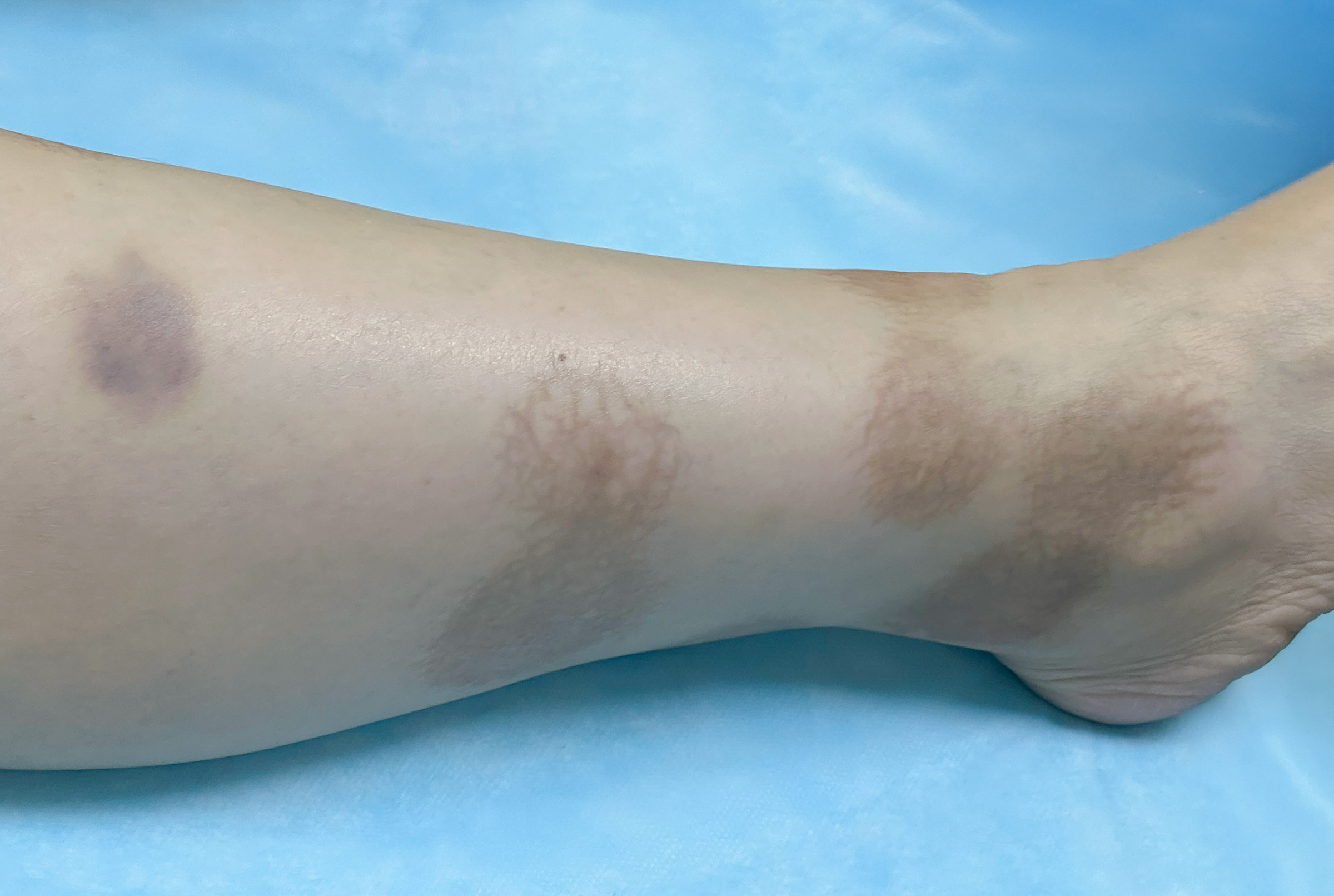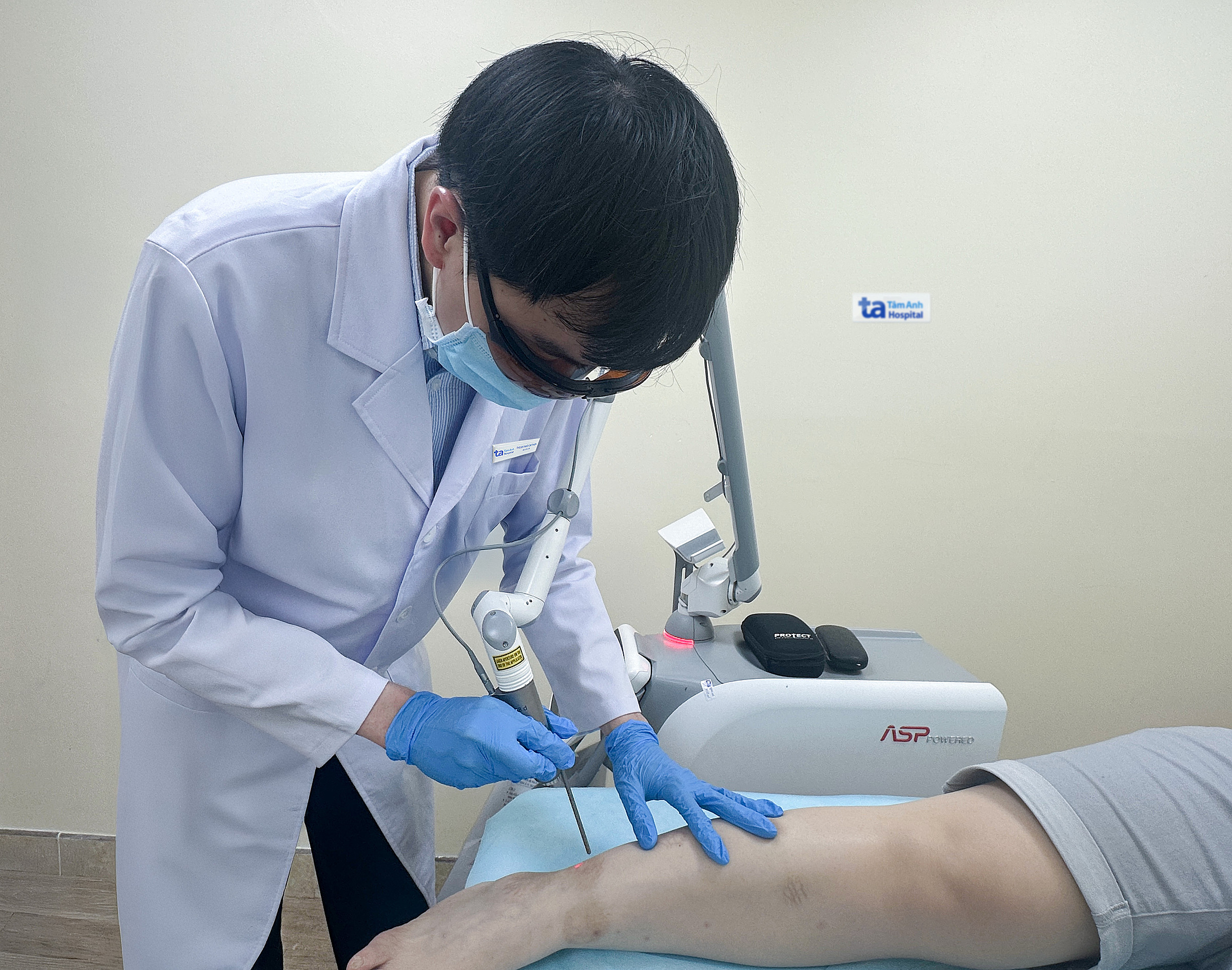Mien initially noticed a small, itchy red rash on her left shin and applied anti-itch cream. Over the next few months, the rash spread, developing into larger coin-sized spots on both her arms and legs, accompanied by itching, flaking, and a burning sensation.
 |
Mien's leg shows the widespread fungal infection after months of using anti-itch cream. Photo: Tam Anh General Hospital |
Mien's leg shows the widespread fungal infection after months of using anti-itch cream. Photo: Tam Anh General Hospital
Skin scrapings and tests at the Dermatology - Cosmetic Dermatology Department of Tam Anh General Hospital in TP HCM revealed that Mien had a common dermatophyte fungal infection. According to Dr. Vu Thi Thuy Trang, Mien's incorrect medication use not only failed to address the root cause but also damaged and thinned her skin. This weakened her local immune system, allowing the fungus to thrive and spread across her legs and arms.
Some allergy and anti-itch creams contain corticosteroids, potent anti-inflammatory agents used to treat various skin conditions like eczema, contact dermatitis, and lupus. Dr. Trang warned that prolonged and improper use of corticosteroids, especially without a doctor's consultation, can thin the skin, dilate blood vessels, cause pigmentation disorders, and increase the risk of infections, potentially worsening fungal infections.
Mien received antifungal creams and oral medication, combined with 4-6 pico laser sessions, spaced two weeks apart, to reduce post-inflammatory hyperpigmentation. After two laser treatments, the darkened areas significantly diminished, her skin tone became more even, and the flaking and burning sensations subsided.
 |
Mien receives pico laser treatment for hyperpigmentation caused by the fungal infection. Photo: Tam Anh General Hospital |
Mien receives pico laser treatment for hyperpigmentation caused by the fungal infection. Photo: Tam Anh General Hospital
Dr. Trang noted that many people consider skin diseases as minor ailments and self-medicate with over-the-counter medications, reuse old prescriptions, or resort to folk remedies. "These methods lack scientific evidence of effectiveness and can cause burns, skin infections, irritation, or further damage," she said.
Each skin condition requires specific treatment and management. Many individuals delay seeking medical attention until the condition has spread or progressed to a severe inflammatory stage. Fungal skin infections like ringworm and tinea versicolor are easily transmitted through direct contact or shared personal items. Without prompt and proper treatment, the infection can spread, increasing the risk of bacterial infections, pustules, cellulitis, and potentially infecting others, especially children with delicate skin and underdeveloped immune systems.
If you experience unexplained itching, rashes, or flaking, it's advisable to consult a dermatologist for diagnosis and appropriate treatment.
Minh Huong
*Name has been changed
| Readers can submit questions about skin diseases here for doctors to answer. |












